Are you a dermatologist wondering if your career is at risk because of AI? Don’t worry, we’ve got you covered.
In this article, we’ll explore the advancements in AI in dermatology and how it affects your profession.
We’ll delve into the role of AI in dermatological analysis, compare AI to human dermatologists, and discuss the potential benefits and challenges of AI adoption.
So, sit back, relax, and let us ease your concerns about the future of your career.

The Advancements of AI in Dermatology
You’ll be amazed at the advancements AI has made in the field of dermatology. Artificial Intelligence (AI) has revolutionized the way dermatologists diagnose and treat various skin conditions. With its incredible capabilities, AI is transforming the field, making it more efficient and accurate than ever before.
One of the most significant advancements in dermatology is the application of AI in skin cancer detection. AI algorithms have been trained using vast amounts of data, enabling them to analyze images of skin lesions with remarkable accuracy. These algorithms can quickly identify potential melanomas and provide dermatologists with crucial information for early diagnosis and treatment. With AI’s assistance, dermatologists can now make more informed decisions, leading to improved patient outcomes.
AI has also proven invaluable in the field of telemedicine. Through the use of AI-powered apps and virtual consultations, dermatologists can remotely assess patients’ skin conditions and provide appropriate treatment plans. This has greatly increased accessibility to dermatological care, especially for those in remote areas or with limited access to medical facilities. AI’s applications in telemedicine have democratized dermatology, ensuring that everyone has the opportunity to receive quality care regardless of their location.
Furthermore, AI has been instrumental in the development of personalized treatment plans. By analyzing vast amounts of patient data, AI algorithms can identify patterns and correlations that may not be immediately apparent to human dermatologists. This enables the creation of tailored treatment plans that consider an individual’s unique characteristics, resulting in more effective and efficient outcomes.
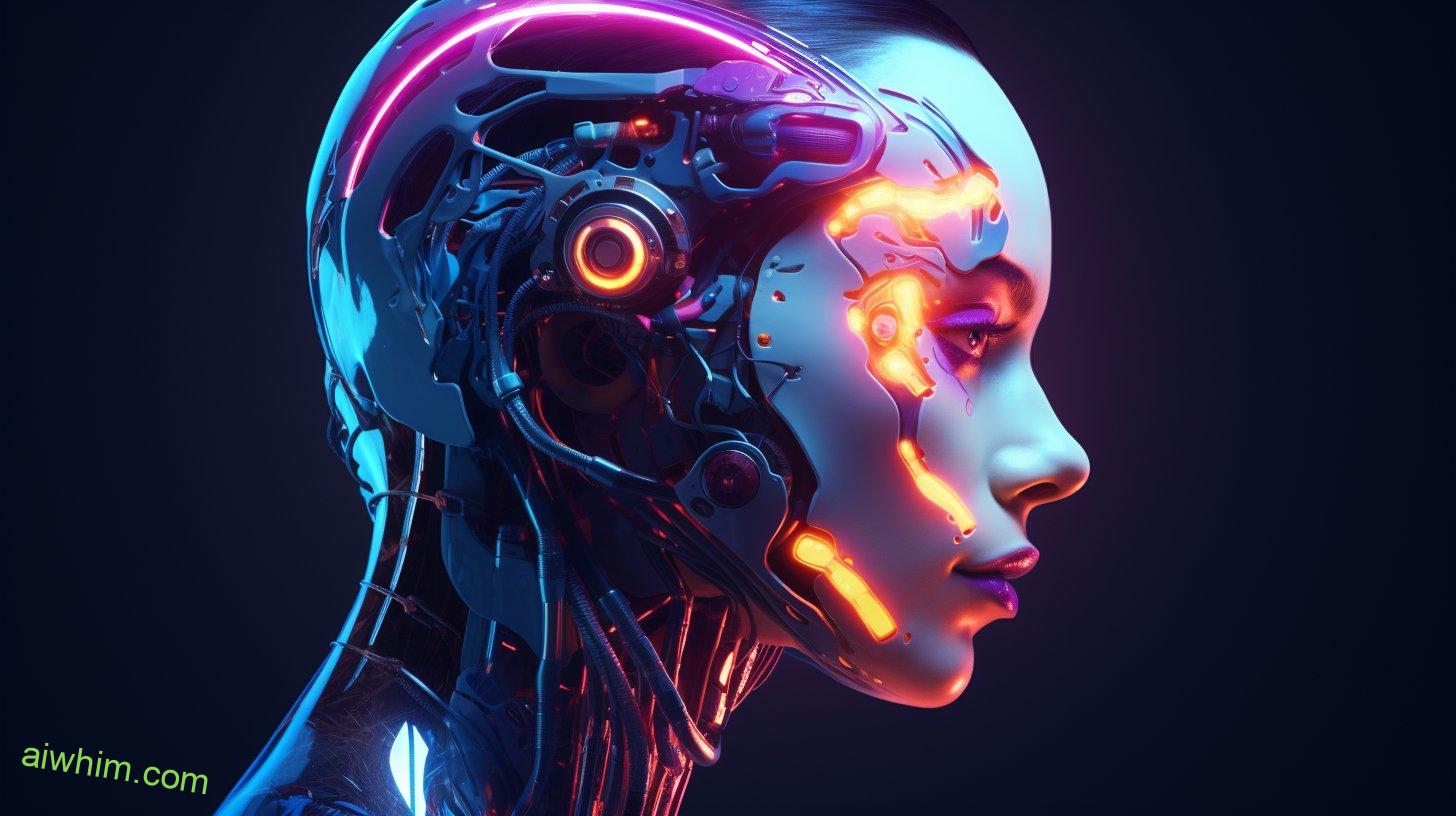
Understanding the Role of AI in Dermatological Analysis
You can gain insights into the impact of AI on dermatological analysis by understanding its role in the field. AI, or Artificial Intelligence, has made significant advancements in the field of dermatology, providing numerous advantages as well as some limitations. By leveraging AI technology, dermatologists can enhance their diagnostic accuracy, improve patient care, and streamline their workflow.
One of the major advantages of AI in dermatological analysis is its ability to assist dermatologists in accurately diagnosing skin conditions. AI algorithms can analyze vast amounts of data, including medical images and patient records, to identify patterns and make accurate predictions. This can save time and reduce the risk of misdiagnosis, ensuring that patients receive appropriate treatment promptly.
Another advantage is AI’s potential to improve patient care. With the help of AI, dermatologists can develop personalized treatment plans based on individual patient characteristics and medical history. AI algorithms can also provide recommendations for preventive measures, helping patients maintain healthy skin and prevent future skin issues.
However, it’s important to acknowledge the limitations of AI in dermatological analysis. While AI can analyze data and identify patterns, it lacks the human touch and intuition that dermatologists possess. Dermatology involves more than just diagnosing based on visual cues; it requires understanding the patient’s medical history, lifestyle, and other factors that AI may not consider. Additionally, AI algorithms rely on existing data, which means they may not be as effective in diagnosing rare or unique skin conditions.

AI Vs. Human Dermatologists: a Comparative Analysis
When comparing AI and human dermatologists, it’s important to consider the strengths and limitations of both in order to make informed decisions regarding patient care.
While AI technology has made significant advancements in dermatological analysis, it’s crucial to recognize the unique role that human dermatologists play in providing comprehensive and personalized care.
Human dermatologists possess a wealth of knowledge and expertise that can’t be replicated by AI. They’ve the ability to diagnose complex skin conditions by considering various factors such as medical history, symptoms, and physical examination. Furthermore, they can empathize with patients and provide emotional support throughout their treatment journey. The human touch in dermatology is invaluable and can’t be replaced by machines.
However, AI has its own set of strengths. Machine learning algorithms can analyze vast amounts of data quickly and accurately, enabling dermatologists to make more informed decisions. AI can also assist in identifying patterns and trends in skin diseases, potentially leading to earlier detection and intervention. Additionally, AI has the potential to improve access to dermatological care, especially in underserved areas where there’s a shortage of dermatologists.
Looking towards the future, the role of humans in dermatology will remain crucial. While AI can aid in diagnosis and treatment, it’s the human dermatologists who’ll interpret and act upon the information provided by AI. They’ll continue to provide personalized care, considering individual patient needs and preferences.
The integration of AI into dermatology practice has the potential to enhance patient outcomes and streamline workflow, but it will never replace the expertise and compassion that human dermatologists bring to the table. Ultimately, the future implications of AI in dermatology are promising, but the role of humans will always be indispensable in delivering quality care.
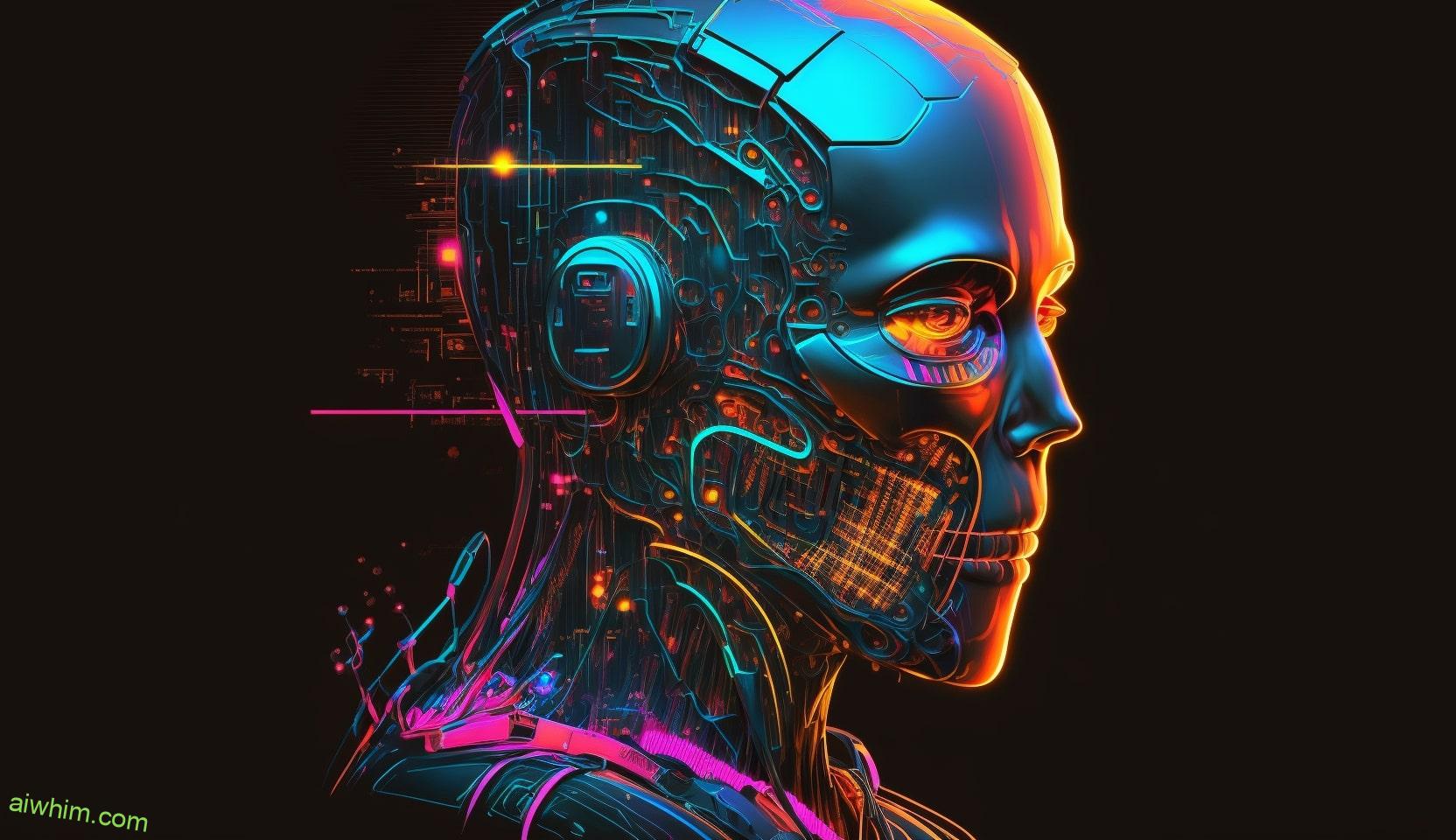
The Potential Benefits of AI in Dermatology Practice
Using AI in your dermatology practice can offer numerous benefits, such as improving diagnostic accuracy and efficiency. AI algorithms have the potential to analyze vast amounts of data quickly and accurately, leading to more precise diagnoses. This can save you time and help you provide better care to your patients.
One of the main advantages of AI in dermatology is its ability to enhance diagnostic accuracy. AI algorithms can analyze images of skin conditions and compare them to a vast database of images and medical knowledge. This can help you identify rare or complex conditions that may be difficult to diagnose without AI assistance. By using AI, you can ensure that you’re providing the most accurate diagnoses to your patients, leading to better treatment outcomes.
Additionally, AI can improve the efficiency of your practice. With AI algorithms, you can streamline the process of analyzing skin images, allowing you to see more patients in less time. This can help you reduce waiting times and improve the overall patient experience. By leveraging AI technology, you can optimize your workflow and provide a higher level of care to a larger number of patients.
However, it’s important to consider the potential drawbacks and ethical considerations of using AI in dermatology. While AI can improve diagnostic accuracy, it shouldn’t replace human expertise and judgment. It’s essential to use AI as a tool to support your clinical decisions rather than relying solely on algorithms. Additionally, ethical considerations such as patient privacy and data security must be taken into account when implementing AI in your practice.
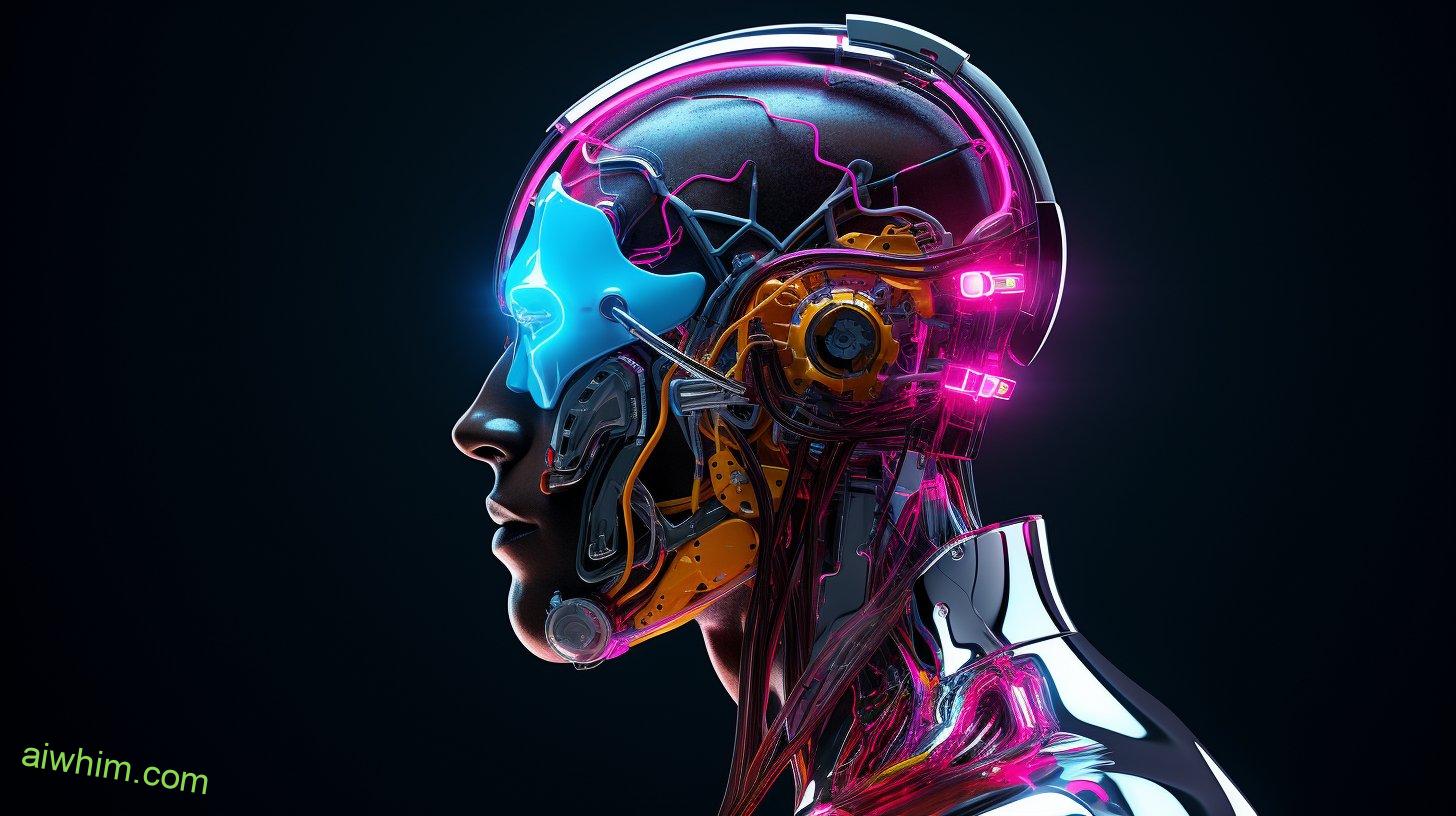
AI-Assisted Diagnosis: Enhancing Accuracy in Dermatology
To enhance the accuracy of diagnoses in dermatology, AI-assisted diagnosis can provide valuable support by analyzing vast amounts of data quickly and accurately. With the advancement of technology, AI has become an integral part of various industries, including healthcare. In dermatology, AI-assisted diagnosis has the potential to revolutionize the way skin conditions are diagnosed and treated.
By leveraging machine learning algorithms, AI systems can analyze large datasets of medical images, patient histories, and clinical data to identify patterns and make accurate diagnoses. This can be particularly useful in dermatology, where visual examination plays a crucial role in identifying skin conditions. AI can help dermatologists by providing additional insights and reducing the chances of misdiagnosis.
AI-assisted diagnosis not only improves accuracy but also saves time. Dermatologists can benefit from the AI’s ability to analyze vast amounts of data quickly, enabling them to make more informed decisions in a timely manner. This can lead to better patient outcomes and improved overall efficiency in dermatology practice.
Furthermore, AI-assisted diagnosis can act as a valuable tool for education and training. By analyzing a wide variety of cases, AI systems can assist in the learning process by providing real-time feedback and suggestions. This can help dermatologists enhance their skills and stay up-to-date with the latest advancements in the field.

Exploring the Limitations of AI in Dermatological Diagnoses
AI-assisted diagnosis in dermatology has its limitations, and it’s important to be aware of them as you integrate this technology into your practice. While AI has made significant advancements in the field of dermatological diagnoses, it’s crucial to understand its limitations and consider the future prospects of this technology.
Here are some limitations of AI in dermatological diagnoses you should keep in mind:
- Limited dataset: AI algorithms rely on vast amounts of data to make accurate diagnoses. However, the current datasets may not fully represent the diversity of skin conditions and may lack certain rare or complex cases.
- Inability to consider context: AI algorithms primarily analyze visual data and may not consider important contextual information, such as patient history, symptoms, or environmental factors that can influence a dermatological condition.
- Lack of human intuition: While AI can analyze large amounts of data quickly, it may not possess the same intuition and clinical judgment as a human dermatologist. Human dermatologists can consider multiple factors and make nuanced decisions based on their experience and expertise.
- Ethical concerns: AI algorithms can sometimes perpetuate biases present in the data they’re trained on, leading to disparities in diagnosis and treatment recommendations across different demographic groups. It’s important to be mindful of these biases and ensure equitable healthcare practices.
- Constant evolution: AI technology is continuously evolving, and new algorithms and models are being developed. It’s important to stay updated with the latest advancements and research to effectively integrate AI into your practice.
While AI-assisted diagnosis has its limitations, it also holds promising future prospects. As technology continues to advance, AI algorithms may improve in accuracy, and with the integration of additional data sources and contextual information, they can become valuable tools in enhancing dermatological diagnoses. However, it’s important to use AI as a complementary tool and not solely rely on it for making clinical decisions.

The Ethical Implications of AI in Dermatology
Now, let’s delve into the ethical implications of AI in dermatology. As a dermatologist, you understand the importance of upholding ethical considerations in your practice. With the rise of AI, it becomes crucial to address the potential impact on patient privacy.
While AI has the potential to revolutionize dermatological diagnoses and treatment, it also raises concerns about the privacy and security of patient data. As AI systems analyze vast amounts of personal information, such as medical records and images, there’s a risk of this data being mishandled or accessed by unauthorized individuals.
To ensure patient privacy, it’s imperative for dermatologists and AI developers to establish robust protocols and safeguards. This involves implementing stringent data protection measures, such as encryption and secure storage systems. Additionally, obtaining informed consent from patients for the use of their data in AI algorithms is essential.
Another ethical consideration is the potential for bias in AI algorithms. If the training data used to develop these algorithms isn’t diverse, it can result in biased diagnoses or recommendations. This could disproportionately affect certain patient populations, leading to inequitable access to healthcare.
To mitigate bias, dermatologists and AI developers must ensure that the data used to train AI systems is representative of the diverse patient population. This includes considering factors such as age, gender, ethnicity, and skin type.

AI Tools for Dermatological Imaging and Analysis
As a dermatologist, you can leverage AI tools for more accurate and efficient dermatological imaging and analysis. With the advancements in artificial intelligence, you now have access to powerful tools that can revolutionize the way you diagnose and treat skin conditions. Here are some ways AI tools can benefit your practice:
- Telemedicine: AI tools can be integrated into telemedicine platforms, allowing you to remotely diagnose and treat patients. This means you can provide your expertise to patients who may not have access to a dermatologist in their area.
- AI-powered skin cancer detection: AI algorithms can analyze images of skin lesions and detect potential signs of skin cancer. This can assist you in making more accurate diagnoses and providing timely treatment to your patients.
- Efficient image analysis: AI tools can analyze large datasets of dermatological images, helping you identify patterns and trends that may not be easily noticeable to the human eye. This can aid in early detection of skin conditions and improve overall patient care.
- Automated image segmentation: AI algorithms can automatically segment images, separating the different layers of the skin or identifying specific features of interest. This can save you time and effort during the analysis process.
- Enhanced patient outcomes: By leveraging AI tools for dermatological imaging and analysis, you can improve the accuracy of your diagnoses and treatment plans. This can ultimately lead to better patient outcomes and satisfaction.
Embracing AI tools in your practice can enhance your capabilities as a dermatologist, allowing you to provide more accurate diagnoses, efficient treatments, and better patient care. These tools aren’t meant to replace you, but rather to augment your skills and expertise, ultimately benefiting both you and your patients. So, explore the possibilities and embrace the power of AI in dermatology.

The Future of Dermatology: Integrating AI Technology
You can expect the integration of AI technology to revolutionize the field of dermatology and improve patient care in the future. The future of dermatological research is bright, as AI has the potential to transform the way skin conditions are diagnosed and treated. By integrating AI in dermatological treatments, dermatologists can benefit from advanced algorithms and machine learning techniques that can analyze vast amounts of data and provide accurate diagnoses.
Imagine a future where AI-powered devices can scan your skin and detect potential skin cancer at an early stage. These intelligent systems can analyze images, identify patterns, and compare them to a vast database of skin conditions. With this technology, dermatologists can make informed decisions and provide personalized treatment plans, resulting in better outcomes for patients.
Furthermore, AI can assist dermatologists in monitoring the progress of treatments and predicting potential complications. By analyzing data from patient records and combining it with real-time information, AI algorithms can provide valuable insights to guide treatment decisions. This integration of AI technology can save time, reduce costs, and enhance overall patient care.
The future of dermatology isn’t about replacing dermatologists with machines. Instead, it’s about empowering dermatologists with intelligent tools that augment their skills and expertise. By embracing AI technology, dermatologists can focus on what they do best: providing compassionate care and making critical decisions based on their clinical judgment.
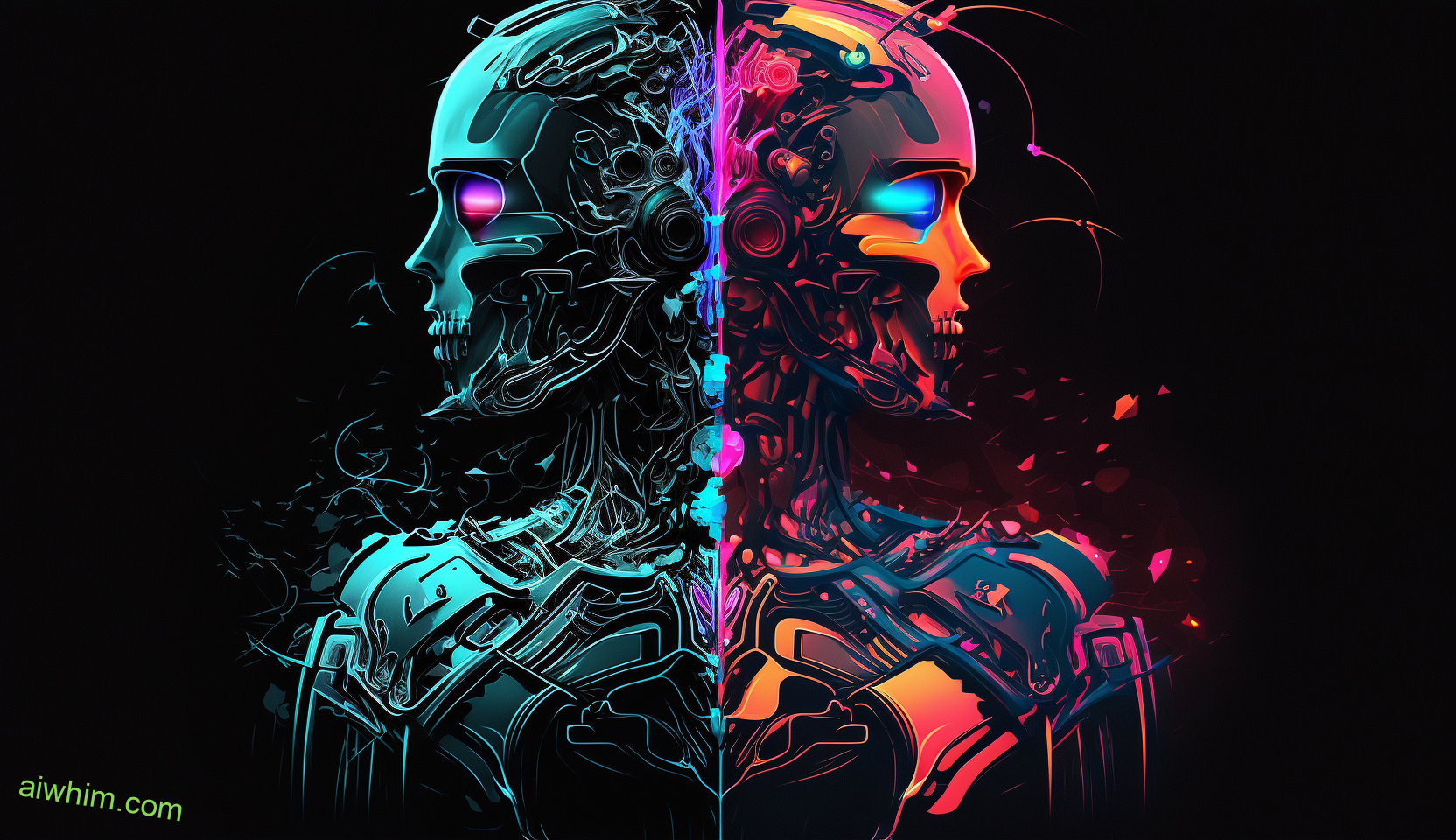
AI Algorithms in Dermatology: How Do They Work
AI algorithms in dermatology utilize advanced machine learning techniques to analyze vast amounts of data and provide accurate diagnoses, revolutionizing the field of dermatology and enhancing patient care. With the integration of AI technology in dermatological research, there are several key considerations to keep in mind:
- Ethical considerations: As AI algorithms become more prevalent in dermatology, it’s important to address the ethical implications. Questions arise regarding patient privacy, data security, and the potential for bias in the algorithms. It’s crucial to establish guidelines and regulations to ensure the responsible and ethical use of AI in dermatology.
- Increased efficiency: AI algorithms can process and analyze large volumes of data at a much faster rate than humans. This increased efficiency allows dermatologists to make more accurate diagnoses and develop tailored treatment plans more effectively. Patients can benefit from quicker and more efficient care, reducing waiting times and improving overall outcomes.
- Enhanced accuracy: AI algorithms have the potential to provide more accurate and consistent diagnoses by analyzing patterns and trends in dermatological data. This can help dermatologists in detecting early signs of skin cancer, identifying rare conditions, and providing accurate treatment recommendations. Improved accuracy leads to better patient outcomes and increased trust in the field of dermatology.
- Improved accessibility: AI algorithms can be integrated into telemedicine platforms, making dermatological care more accessible and convenient for patients. Through virtual consultations and remote monitoring, patients can receive expert dermatological advice and care regardless of their location. This technology has the potential to bridge the gap between patients and dermatologists, especially in underserved areas.
- Continual learning: AI algorithms have the ability to continually learn and improve over time. By analyzing vast amounts of data and incorporating new information, these algorithms can adapt and enhance their diagnostic capabilities. This continual learning process ensures that dermatologists have access to the latest advancements in the field, leading to better patient care.

Augmenting Dermatological Skills With AI Assistance
With the assistance of AI, you can enhance your skills as a dermatologist and provide more accurate diagnoses and treatment plans. AI-driven diagnosis is revolutionizing the field of dermatology, improving treatment outcomes and ensuring better patient care.
Imagine having access to an intelligent system that can analyze thousands of medical images, identify patterns, and provide valuable insights in a matter of seconds. This is the power of AI in dermatology. By leveraging machine learning algorithms, AI can assist you in making more precise diagnoses, reducing the margin of error.
AI algorithms are trained on vast databases of dermatological images, enabling them to recognize various skin conditions with remarkable accuracy. They can detect subtle differences in skin lesions, identify potential malignancies, and even predict disease progression. With this knowledge at your disposal, you can make better-informed decisions about treatment options and tailor them to individual patients.
Moreover, AI can also help you keep up with the ever-evolving field of dermatology. By analyzing large volumes of medical literature, AI algorithms can extract relevant information, latest research findings, and treatment guidelines. This not only saves you time but also ensures that you’re up to date with the latest advancements in your field.

Overcoming Challenges: AI Adoption in Dermatology
Now that you understand how AI can assist dermatologists in augmenting their skills, let’s explore the challenges that come with adopting AI technology in the field of dermatology.
Overcoming these challenges is crucial for successfully integrating AI into the daily practice of dermatologists like yourself.
Here are some key obstacles you may encounter when adopting AI in dermatology:
- Data privacy concerns: Ensuring patient data privacy and security is essential when using AI technology. Implementing robust data protection measures can help address these concerns.
- Algorithm accuracy: AI algorithms need to be highly accurate and reliable to provide trustworthy diagnoses and treatment recommendations. Continuous refinement and validation of these algorithms are necessary to overcome this challenge.
- Lack of standardized data: The availability of standardized, high-quality data is crucial for training AI models effectively. Collaboration between healthcare providers and AI developers can help overcome this hurdle by creating comprehensive datasets.
- Cost and infrastructure: Implementing AI technology requires significant investments in terms of infrastructure and training. Identifying cost-effective solutions and ensuring compatibility with existing systems can help overcome this challenge.
- Resistance to change: Some healthcare professionals may be resistant to adopting AI technology, fearing that it may replace their role. Educating and involving them in the implementation process can help address this resistance and foster a collaborative environment.
By acknowledging and addressing these challenges head-on, you can pave the way for successful integration of AI technology into your dermatology practice.
Let’s explore how you can overcome these challenges and leverage the power of AI to improve patient care and outcomes.

AI’s Impact on Dermatology Education and Training
As a dermatologist, you can enhance your education and training by embracing the impact of AI in the field of dermatology. AI has revolutionized the way dermatology research is conducted, opening up new avenues of exploration and discovery. By harnessing the power of AI, you can delve deeper into the mysteries of skin diseases and uncover groundbreaking insights that were previously unimaginable.
AI’s role in improving dermatology treatment is equally significant. With its ability to analyze vast amounts of data and identify patterns, AI can assist in diagnosing skin conditions with greater accuracy and speed. This not only saves valuable time but also ensures that patients receive the most appropriate treatment plan tailored to their individual needs.
One of the key benefits of AI in dermatology education and training is its ability to provide personalized learning experiences. AI-powered platforms can adapt to your specific learning style and pace, allowing you to acquire knowledge more efficiently. These platforms can simulate real-world scenarios, enabling you to practice and refine your skills in a risk-free environment.
Furthermore, AI can facilitate collaboration and knowledge sharing among dermatologists worldwide. With the help of AI, you can connect with experts from different parts of the world, exchange ideas, and stay up-to-date with the latest advancements in the field. This global network of knowledge empowers you to provide the best possible care for your patients.
Embracing the impact of AI in dermatology education and training is essential for your professional growth and the improvement of patient outcomes. By incorporating AI into your practice, you can stay at the forefront of dermatology research, enhance diagnostic accuracy, and provide personalized treatment plans. So, seize the opportunities that AI offers and unlock your full potential as a dermatologist.
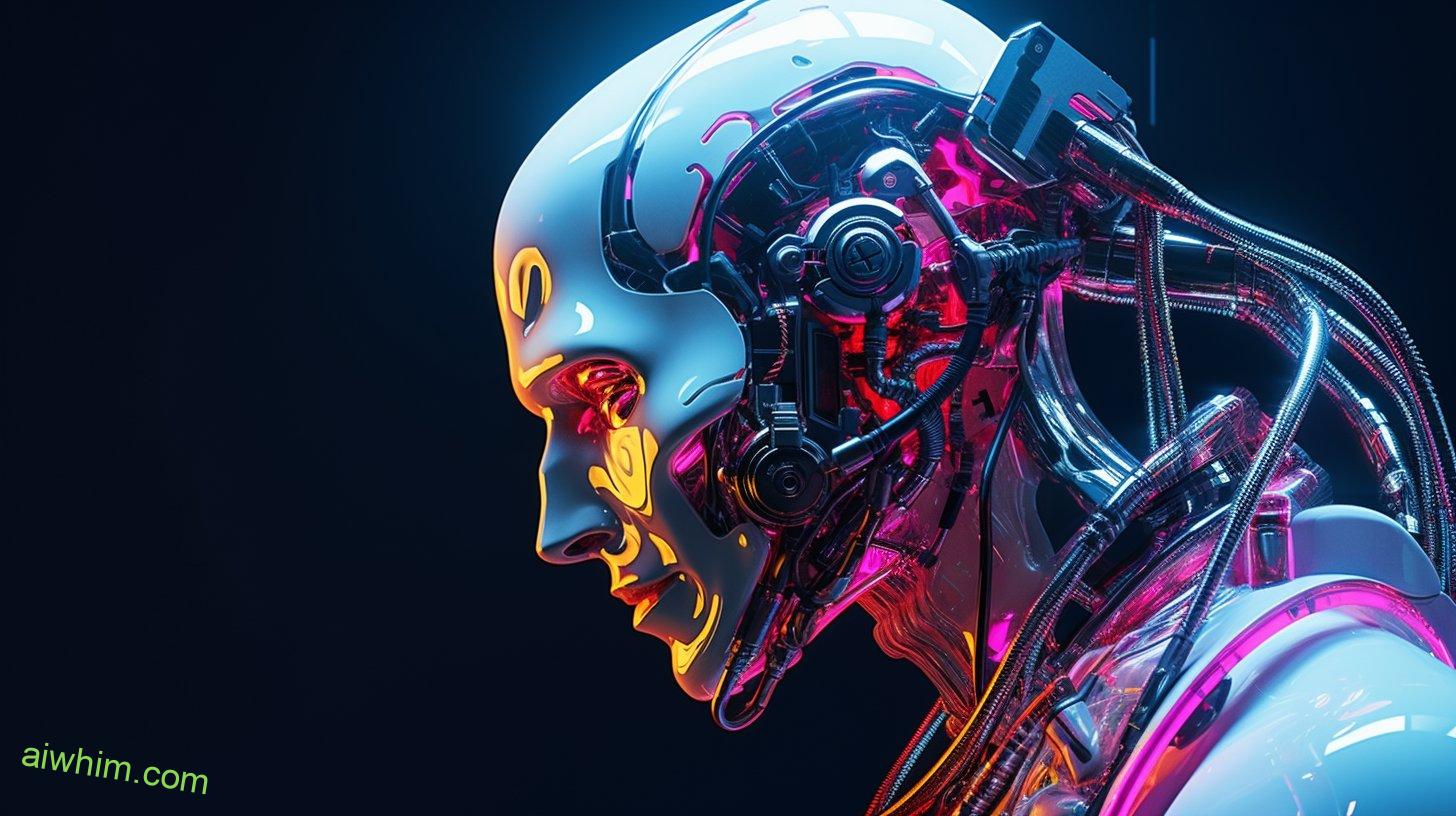
The Human Touch: The Importance of Dermatologist-Patient Relationship
Developing a strong rapport with your patients is crucial in dermatology, as it allows you to understand their concerns and provide them with the personalized care they deserve. In a field where technology is advancing rapidly, it’s easy to overlook the significance of the human touch. However, building trust and showing empathy towards your patients can make all the difference in their experience with you as their dermatologist.
Here are five reasons why the importance of empathy and building trust can’t be underestimated in your practice:
- Enhanced Communication: When you establish a strong rapport with your patients, it becomes easier to communicate effectively. They’ll feel comfortable sharing their concerns, symptoms, and medical history, allowing you to provide accurate diagnoses and tailored treatment plans.
- Patient Satisfaction: By showing empathy and building trust, you create an environment where patients feel heard and understood. This leads to higher levels of patient satisfaction, as they feel valued and cared for throughout their journey with you.
- Improved Treatment Compliance: When patients trust their dermatologist, they’re more likely to follow through with the recommended treatment plans. They understand the importance of adhering to the prescribed medications and lifestyle changes, leading to better outcomes.
- Empowerment and Education: Building a strong rapport allows you to educate and empower your patients. By explaining their condition, treatment options, and potential risks, you help them make informed decisions about their own healthcare.
- Long-lasting Relationships: A strong dermatologist-patient relationship often extends beyond a single visit. Patients who feel a connection with their dermatologist are more likely to return for regular check-ups and seek your advice for any future concerns.

Embracing AI: Collaborative Approach for Dermatologists and AI Technology
Embracing AI technology in dermatology allows you to enhance your practice through a collaborative approach that leverages the benefits of both human expertise and artificial intelligence.
The integration of AI technology in dermatology isn’t a threat to your career, but rather a tool that can revolutionize the way you diagnose and treat skin conditions.
By collaborating with AI technology, you can access a vast amount of information and data that can help you make more accurate diagnoses and develop personalized treatment plans for your patients. AI algorithms can analyze thousands of medical images and patient data, allowing you to quickly identify patterns and make informed decisions.
This collaboration between human dermatologists and AI technology can lead to more efficient and effective patient care.
One of the key benefits of this collaborative approach is the ability to leverage the strengths of both human expertise and AI technology. As a dermatologist, you bring years of medical training and experience to the table. Your clinical judgment and intuition are invaluable in making complex diagnoses and designing individualized treatment plans. AI technology, on the other hand, can process and analyze massive amounts of data at a speed and accuracy that surpasses human capabilities.
By working together, you can achieve better outcomes for your patients.
Moreover, embracing AI technology can also free up your time and allow you to focus on what matters most – providing quality care to your patients. AI algorithms can assist with administrative tasks, such as scheduling appointments and organizing patient records, leaving you with more time to spend with your patients and improve their overall experience.

Frequently Asked Questions
How Does AI Technology Impact the Education and Training of Dermatologists?
AI technology is revolutionizing dermatology education and training. Medical school curriculums now include AI integration for better diagnosis and treatment. Ethical considerations in AI usage are prioritized to ensure patient safety and maintain human expertise.
What Are the Potential Benefits of AI in Dermatology Practice?
AI advancements in dermatology can bring potential benefits to your practice. AI-driven treatment recommendations can enhance accuracy and efficiency, allowing you to provide better patient care and expand your expertise in the field.
Can AI Algorithms Accurately Diagnose Dermatological Conditions?
AI algorithms can accurately diagnose dermatological conditions, posing a potential threat to your career as a dermatologist. However, human dermatologists bring expertise, empathy, and personalized care that AI cannot replicate, ensuring your place in the field.
What Are the Limitations of AI in Dermatological Diagnoses?
When it comes to AI in dermatological diagnoses, it’s important to consider the limitations. While AI can be accurate, it may struggle with complex cases or subtle nuances that require human expertise.
How Does the Integration of AI Technology in Dermatology Affect the Dermatologist-Patient Relationship?
When AI technology integrates into dermatology, it impacts the dermatologist-patient relationship. With potential privacy concerns and ethical considerations, the dynamic between you and your patients may change.

Conclusion
In conclusion, while the advancements of AI in dermatology are impressive, the human touch and expertise of dermatologists can’t be replaced. Dermatologists play a crucial role in establishing a strong patient-doctor relationship and providing personalized care.
While AI can enhance accuracy and efficiency in diagnosis, it can’t replicate the empathy and understanding that dermatologists bring to their practice. So, rest assured, your career as a dermatologist isn’t under AI threat; it’s only being supplemented by this innovative technology.







